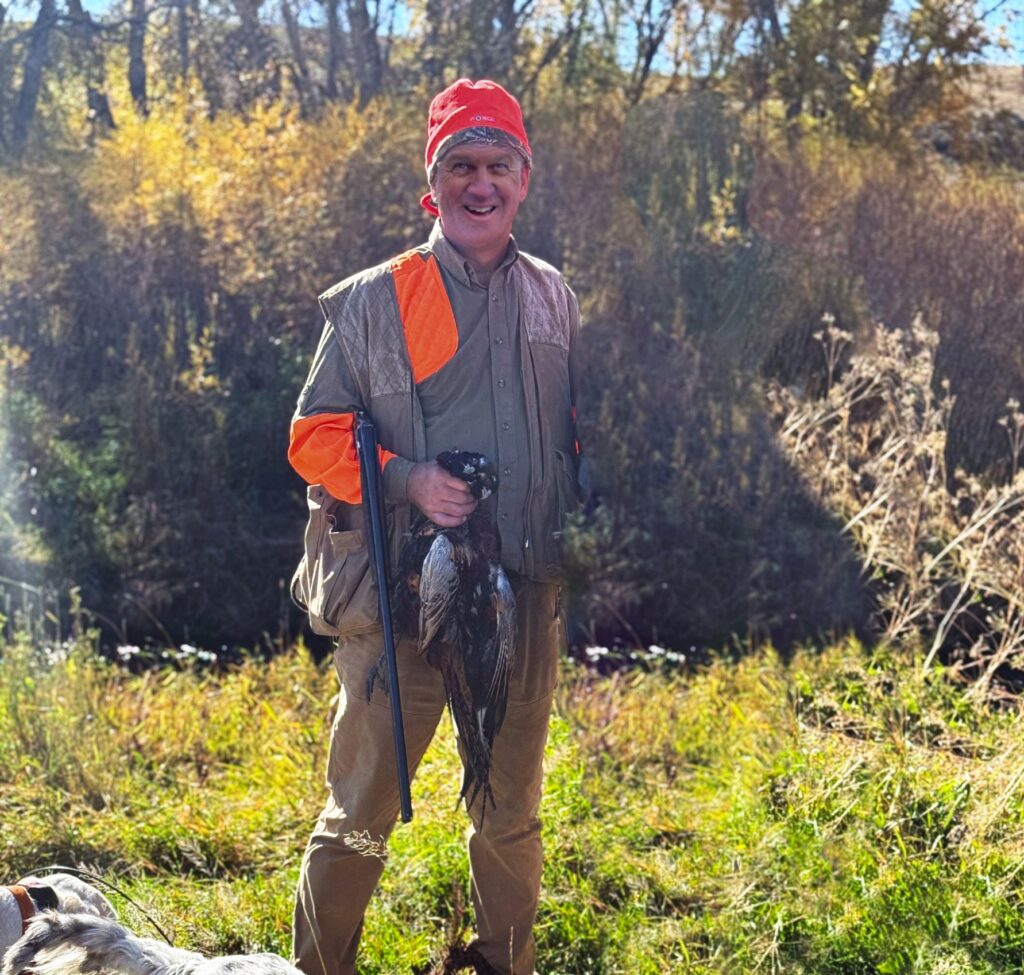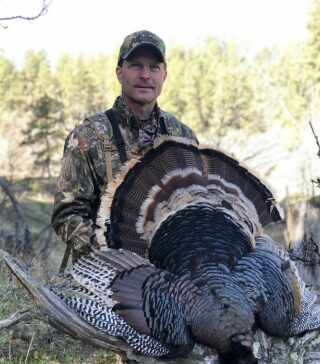How lawmakers can build on recent conservation successes and deliver big wins for the hunting and fishing community
The 118th Congress was productive for hunters, anglers, and the TRCP community. Alongside our partners, we celebrated the passage of the EXPLORE Act, America’s Conservation Enhancement Act, and the Water Resources Development Act which all contained important provisions for habitat conservation and access, but there is still work to be done.
The 119th Congress officially began on January 3, 2025. Amid the uncertainty of navigating a presidential transition, new leadership in the Senate, and fresh faces sitting atop numerous committees, Congress has the potential to deliver big wins for fish and wildlife, habitat conservation, and hunting, fishing, and recreational access.
Below are a few ways the 119th Congress can advance conservation and access:
Pass a Farm Bill

Yet another Farm Bill expiration deadline came and went in late 2024 without a new bill being signed. The U.S. Department of Agriculture is still operating on the 2018 Farm Bill, leaving big opportunities on the table to expand support for voluntary access and habitat conservation programs on private lands. As Agriculture Committees return to work with new leadership, the TRCP will be pushing for a Farm Bill that supports wildlife, habitat, and hunters and anglers across the country.
Among the most impactful things that this Congress can do to bolster conservation and access is to invest Inflation Reduction Act funds into the Farm Bill baseline, making them permanent. Failure to do so would wipe out billions of dollars that go directly to farmers and ranchers through these popular, voluntary programs. The good news is there was bipartisan support last Congress among leadership of Agriculture Committees to roll these funds into the Farm Bill baseline.
Any new Farm Bill should also include a reauthorization and expanded funding for the Voluntary Public Access and Habitat Incentive Program, the only federal tool aimed at increasing hunting and fishing access on private lands. Additionally, Congress should use Farm Bill proposals from the 118th Congress to conserve big game migratory habitat on private lands and improve forest health and fish and wildlife habitat in headwater environments.
Unlock More Access Opportunities for Hunters and Anglers
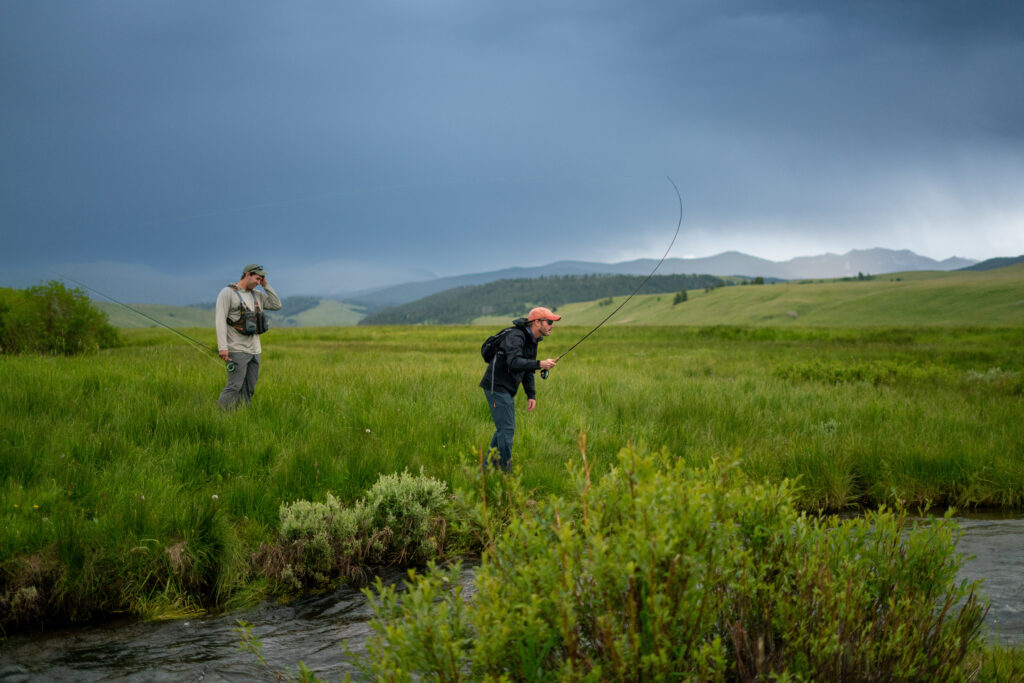
Hunters, anglers, and outdoor recreationists had plenty to cheer about in the 118th Congress with the passage of the EXPLORE Act, a first of its kind recreation-focused legislative package. However, Congress still has work to do in the 119th to unlock more access opportunities on federal waterways and oceans.
Here are a few ways Congress can do this:
Pass the MAPWaters Act. The MAPWaters Act would require federal land management agencies to digitize water and fishing access and recreational use information on federal waterways and make those resources available to the public. The bill passed both the House and Senate last Congress on sweeping bipartisan margins, but minor differences in the two bills meant that the bill ultimately failed to cross the finish line in the 118th Congress.
Pass the MAPOceans Act. Like the MAPWaters Act, the MAPOceans Act would require NOAA to create a publicly accessible database that outlines fishing restrictions and closures, boating restrictions and closures, and allowable methods of take in federal waters.
Reauthorize the National Parks and Public Lands Legacy Restoration Fund. Established by the Great American Outdoors Act, the National Parks and Public Lands Legacy Restoration Fund is set to expire. This fund provides federal land management agencies with resources to address the backlog of deferred maintenance projects. Congress should act to reauthorize this important source of funding to restore and expand access opportunities on public lands.
Given the demonstrated, broad support, the 119th Congress should move quickly to send these common-sense bills to the President’s desk.
Streamline Permitting for Restoration Projects
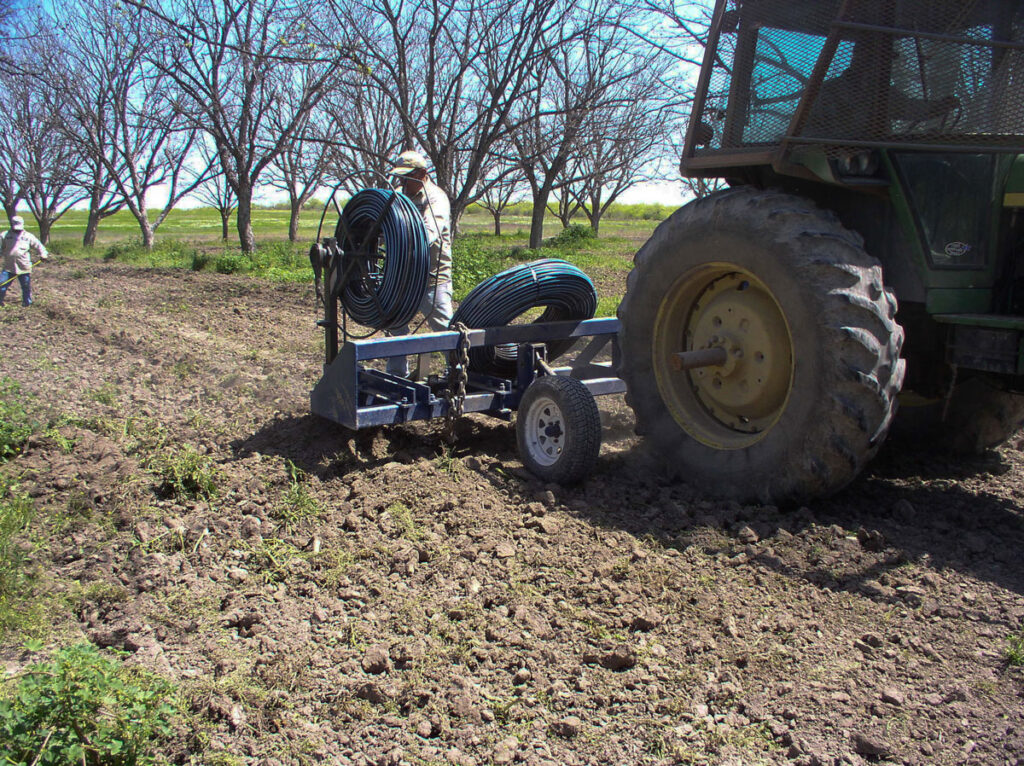
Despite a compromise deal emerging from the Senate, the 118th Congress ultimately failed to pass a comprehensive permitting reform legislative package. Permitting reform talks have largely focused on expediting environmental review for energy and transmission projects, but Congress must also address the issue of overly cumbersome and excessive delays on approving ecosystem restoration and other environmentally beneficial projects. Currently, these projects go through the same approval process as other development and infrastructure projects, which creates unnecessary hurdles and complicates on-the-ground habitat restoration work. These projects help support recreational access and sustain the $1.1 trillion annual outdoor economy.
TRCP worked with our partners to develop common-sense recommendations to cut through the “green tape” that delays conservation and restoration projects. By developing a categorical exclusion specific to the Department of Interior for restoration actions and simplifying, and scaling, mitigation as a component of permitting, Congress can help get more conservation and restoration work on the ground and reduce the amount of money spent on environmental analysis without diminishing protections under the National Environmental Policy Act (NEPA) or other bedrock environmental statutes.
Conserve Big Game Migration Corridors
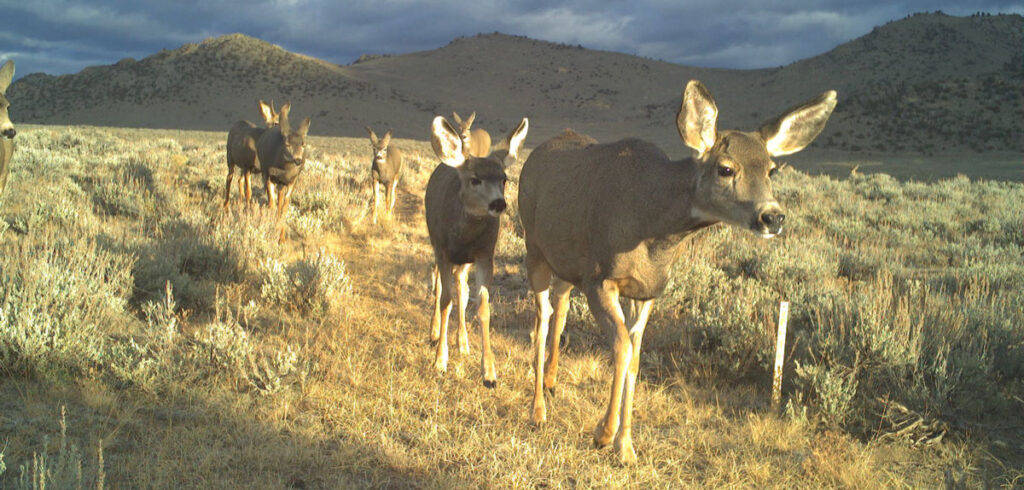
The Wildlife Movement Through Partnerships Act, introduced in the 118th Congress, would formally authorize existing federal programs initiated by the Department of the Interior during the Trump Administration through Secretarial Order 3362, signed by then-Secretary Ryan Zinke, to conserve big game migration corridors through voluntary financial and technical assistance to states, Tribes, and private landowners.
These programs have been supported and expanded by the Biden Administration but remain discretionary, meaning that they rely on federal agencies setting aside funding each year to continue implementing these programs. Congressional action to formalize these discretionary programs would guarantee that the work persists regardless of administration changes. This is important because the annual budgets of state and Tribal wildlife agencies are unable to meet the full demand for resource management. The financial and technical assistance from these federal programs would help to bridge that funding gap.
The Wildlife Movement Through Partnerships Act gained momentum in the 118th Congress having hearings in both the House and Senate which presents a strong jumping off point for swift consideration in the 119th Congress. Passing this bill would represent the culmination of nearly a decade of work by the hunting and fishing community while building upon the success of existing big game habitat conservation efforts.
Support Wildlife Habitat Connectivity and Public Access in the Highway Bill

Congress passed a comprehensive surface transportation and infrastructure bill, the Infrastructure Investment and Jobs Act (IIJA), in 2021. The IIJA included numerous conservation investments championed by TRCP and our partners including generational investments in wildlife crossing infrastructure, fish passage, public land access, and natural infrastructure solutions. Many of these programs funded under the IIJA are set to expire in fiscal year 2026, handing the 119th Congress an opportunity to build on the success of these programs that benefit fish and wildlife habitat, reduce costs, create jobs, and enhance public safety.
For example, the IIJA allocated $350 million to the Wildlife Crossing Pilot Program, a first-of-its-kind grant program to construct wildlife-friendly roadway infrastructure to reduce wildlife vehicle collisions and improve habitat connectivity for big game and other wildlife. IIJA has also provided investments in aquatic connectivity, which have addressed barriers to fish passage and improved aquatic habitat and have similarly spurred innovation and collaboration across numerous federal and state agencies and other partners and should be prioritized in a surface transportation bill.
Simply put, the Wildlife Crossings Pilot is successful partnership-based program that leverages expertise and funds across numerous federal and state departments and Congress should seek to permanently authorize this program and allocate additional funds to better meet demand.
The 119th Congress should also seek to enhance access opportunities for hunters, anglers, and recreationists through a surface transportation bill. Despite a surface transportation reauthorization bill being colloquially called a “Highway Bill,” there’s an opportunity to improve access to remote, rural public lands through partnerships with counties. Congress could establish a pilot program to make grants available to counties to digitize records and make information publicly available on the location and status of county-maintained roads.
Develop Tax Policy Updates that Fund Conservation
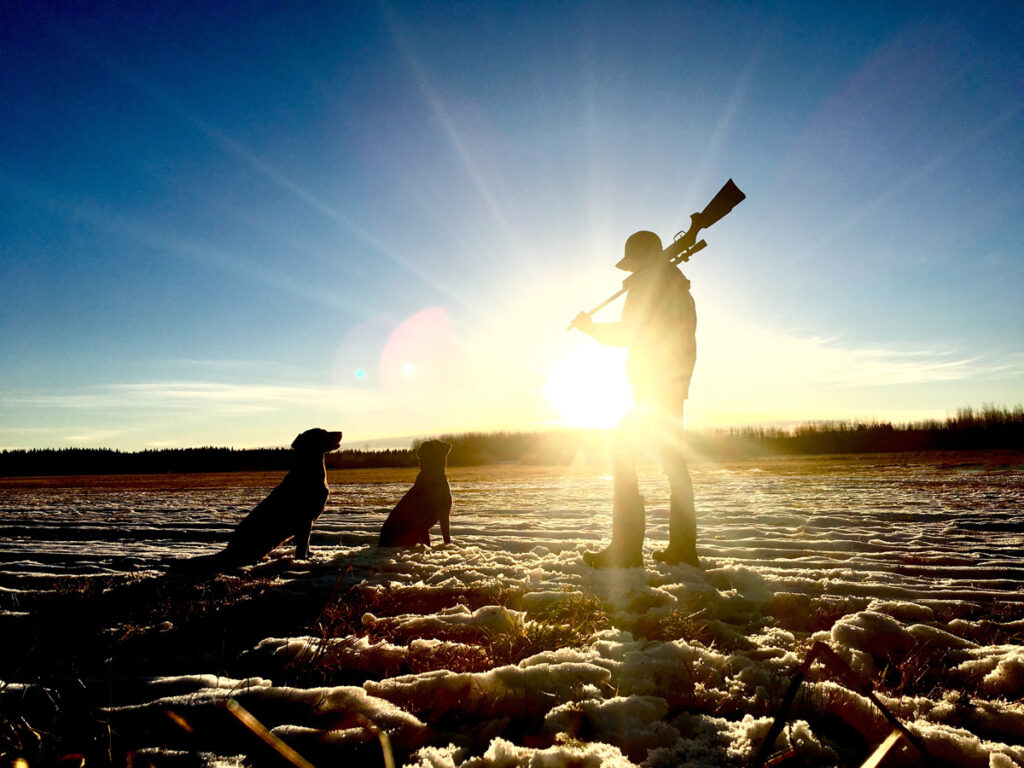
Republican leadership in the House and Senate are widely expected to prioritize a broad tax reform package in 2025. This provides an opportunity for the 119th Congress to close tax loopholes that divert funds away from conservation.
The rise of online marketplaces that facilitate direct-to-consumer sales from overseas manufacturers has created a growing loophole that is undermining the North American Model of Wildlife Conservation. The federal excise tax on hunting and fishing equipment established under Pittman-Robertson and Dingell-Johnson is not being collected on foreign-made fishing tackle and archery equipment sold direct from overseas to U.S. consumers, and online marketplaces are not currently responsible for collecting the excise tax on archery and fishing tackle imports. Any comprehensive legislative package on tax policy must close this loophole that accounts for an estimated annual loss of $17 million dollars that would otherwise go to fund state fish and wildlife management agencies.
Conservation is, and should be, a shared priority regardless of party affiliation or ideology. Congress needs to hear that conservation is important to you. For more information, and to take action in support of critical conservation priorities in the year ahead, visit the TRCP Action Center.
The TRCP is your resource for all things conservation. In our weekly Roosevelt Report, you’ll receive the latest news on emerging habitat threats, legislation and proposals on the move, public land access solutions we’re spearheading, and opportunities for hunters and anglers to take action. Sign up now.


